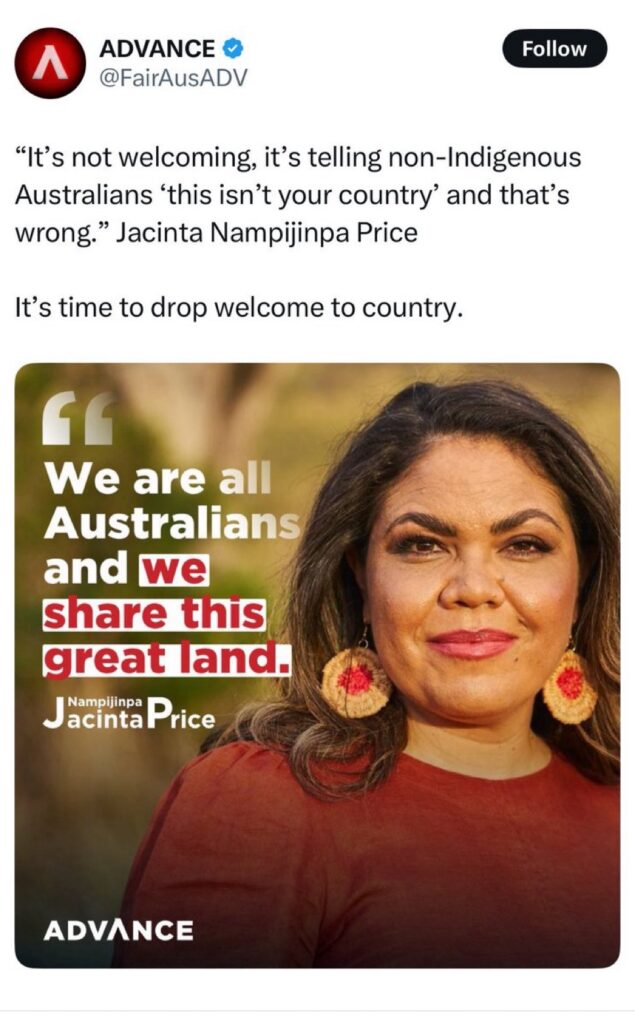
The term “culture wars” evokes a battleground of ideas, values and identities, where competing visions of society clash with fervour. In Australia, culture wars have emerged as a significant feature of public discourse, shaping debates on issues ranging from Indigenous rights and multiculturalism to gender, education and national identity. These conflicts often appear as struggles over the soul of the nation, but at their core, they reflect a deeper tension: an attempt to anchor the future to the past. This post explores the dynamics of Australia’s culture wars, arguing that they represent a reactionary effort to preserve outdated frameworks in the face of inevitable social, cultural and political change.
Defining Culture Wars in the Australian Context
Culture wars are ideological conflicts over the values, norms and symbols that define a society. In Australia, these wars manifest as polarised debates over what it means to be Australian, who gets to define national identity and how the nation should navigate its colonial legacy and multicultural present. Unlike the United States, where culture wars often centre on religious and partisan divides, Australia’s culture wars are shaped by its unique history as a settler-colonial nation with a relatively recent push toward multiculturalism and reconciliation.
The concept of culture wars gained traction in Australia during the 1990s, particularly during the Howard government (1996–2007), when debates over Indigenous land rights, the “history wars,” and immigration intensified. Prime Minister John Howard’s rejection of the “black armband” view of history – which emphasised the atrocities of colonisation – set the tone for a conservative push to celebrate Australia’s colonial and British heritage. Since then, culture wars have ebbed and flowed, resurfacing with issues like marriage equality, climate change and the Voice to Parliament referendum in 2023.
At their heart, Australia’s culture wars are a struggle between progress and preservation. Progressive forces advocate for inclusivity, diversity and acknowledgment of historical injustices, while conservative voices often defend traditional values, national pride and a selective reading of history. This binary, however, oversimplifies the complexity of the debates, which are fuelled by media, political opportunism and global influences. The central thesis of this discussion is that culture wars, in their essence, are less about shaping a forward-looking society and more about tethering Australia’s future to a past that is selectively remembered and idealised.
The Historical Roots of Australia’s Culture Wars
To understand why culture wars are an attempt to hitch the future to the past, we must first examine Australia’s historical context. As a settler-colonial nation, Australia was founded on the dispossession of Indigenous peoples, a process justified by notions of British superiority and terra nullius. This colonial legacy laid the groundwork for a national identity rooted in Anglo-Celtic traditions, which dominated cultural and political life for much of the 20th century.
The White Australia policy (1901–1973) epitomised this exclusionary vision, restricting non-European immigration and reinforcing a homogenous national identity. Even after the policy’s dismantling and the embrace of multiculturalism in the 1970s, the tension between a pluralistic future and a monocultural past persisted. The 1988 Bicentenary celebrations, marking 200 years since British colonisation, highlighted this divide: while some celebrated Australia’s achievements, Indigenous activists and allies protested the erasure of Aboriginal suffering.
The 1990s marked a turning point, as the High Court’s Mabo decision (1992) overturned terra nullius and the Bringing Them Home report (1997) exposed the horrors of the Stolen Generations. These developments challenged the foundational myths of Australia’s past, prompting a backlash from conservatives who felt the nation’s pride was under attack. Historian Geoffrey Blainey’s critique of the “black armband” view and Howard’s dismissal of “political correctness” crystallised this resistance, framing progressive reforms as threats to a cohesive national narrative.
This historical context reveals why culture wars are so entrenched. They are not merely debates about policy but battles over memory and meaning. Conservative actors seek to preserve a version of Australia that aligns with its colonial and Anglo-centric origins, while progressives push for a reckoning with the past to build a more inclusive future. The past, in this sense, becomes a tool for legitimising or challenging present-day values.
Key Battlegrounds in Australia’s Culture Wars
Australia’s culture wars play out across multiple fronts, each illustrating the tension between progress and nostalgia. Below, we explore five key battlegrounds, emphasising how they reflect efforts to anchor the future to the past.
Indigenous Reconciliation and the Voice to Parliament
The struggle for Indigenous rights is perhaps the most enduring front in Australia’s culture wars. From the 1967 referendum to the 2008 Apology to the Stolen Generations, efforts to address historical injustices have met with both support and resistance. The 2023 Voice to Parliament referendum, which proposed a constitutionally enshrined Indigenous advisory body, was a flashpoint that encapsulated this divide.
Proponents argued that the Voice was a step toward reconciliation, empowering Indigenous communities to influence policies affecting them. Opponents, including conservative politicians and commentators, framed it as divisive, claiming it would undermine national unity or grant “special privileges” to Indigenous Australians. The referendum’s defeat, with 60% voting “No,” reflected deep-seated anxieties about changing the status quo.
This resistance is rooted in a desire to preserve a national narrative that downplays colonial violence. Critics of the Voice often invoked the idea of “one Australia,” echoing Howard’s vision of a unified nation unburdened by historical guilt. Yet, this unity is predicated on erasing Indigenous perspectives, effectively hitching the future to a past where Aboriginal voices were silenced. The culture war over reconciliation is thus a battle over whether Australia can move beyond its colonial foundations or remain tethered to them.
Immigration and Multiculturalism
Australia’s identity as a multicultural nation has been a lightning rod for culture wars since the 1970s. The influx of non-European migrants, particularly from Asia and the Middle East, has challenged the Anglo-centric vision of Australia, sparking debates over integration, national values and border security.
The 2005 Cronulla riots, where predominantly white Australians clashed with Lebanese-Australian youths, exposed the fragility of multicultural harmony. More recently, debates over asylum seekers and “boat people” have fuelled anti-immigrant sentiment, with figures like Pauline Hanson framing migration as a threat to Australian culture. The rhetoric of “protecting our way of life” is a recurring theme, invoking a nostalgic image of a homogenous, Anglo-Australian past.
This backlash reflects a fear of cultural change, as conservative voices seek to preserve a static national identity. Yet, Australia’s demographic reality – nearly 30% of its population was born overseas and over 50% have at least one parent born abroad – makes this vision untenable. The culture war over immigration is an attempt to freeze Australia in a bygone era, ignoring the dynamic, pluralistic society it has become.
Gender, Sexuality and Social Change
Issues of gender and sexuality have become increasingly prominent in Australia’s culture wars, particularly with the rise of feminist and LGBTQ+ movements. The 2017 marriage equality plebiscite was a defining moment, with 61.6% of Australians voting in favour of same-sex marriage. While this marked a progressive victory, it also galvanised conservative opposition, with groups like the Australian Christian Lobby arguing that traditional family values were under threat.
More recently, debates over transgender rights, particularly in schools and sports, have intensified. Conservative commentators, such as those on Sky News Australia, have framed trans inclusion as an attack on biological realities and parental rights. The controversy over “woke” education – such as teaching gender diversity or critical race theory – further illustrates this divide, with critics arguing that such curricula indoctrinate children and erode traditional norms.
These debates reveal a deeper anxiety about social change. By defending “traditional” gender roles and family structures, conservatives seek to preserve a social order rooted in the past, often ignoring the lived realities of diverse communities. The culture war over gender and sexuality is thus a struggle to maintain a static moral framework in a rapidly evolving society.
History Wars and National Identity
The “history wars” are a central pillar of Australia’s culture wars, focusing on how the nation’s past is taught, commemorated and understood. Statues of colonial figures like Captain James Cook and Governor Lachlan Macquarie have become flashpoints, with some calling for their removal due to their roles in Indigenous dispossession, while others defend them as symbols of national achievement.
Australia Day, celebrated on January 26, is another contentious issue. For many, it marks the arrival of the First Fleet and the birth of modern Australia; for Indigenous Australians and allies, it is “Invasion Day,” a reminder of colonisation’s devastating impact. Efforts to change the date or reframe the holiday have met fierce resistance from those who see it as an attack on national pride.
The history wars are a clear example of hitching the future to the past. By defending colonial symbols and narratives, conservatives seek to preserve a version of Australian identity that glorifies its British heritage while marginalising Indigenous and multicultural perspectives. This selective memory stifles efforts to forge a national identity that reflects Australia’s complex, pluralistic present.
Advance Australia and the Politicisation of Welcome to Country
A more recent manifestation of Australia’s culture wars is the controversy over Welcome to Country and Acknowledgement of Country ceremonies, which have been weaponised by groups like Advance Australia to stoke division. Welcome to Country, a traditional Indigenous practice to honour the land and its custodians, has become increasingly common at public events, schools and workplaces as a gesture of respect and reconciliation. However, Advance Australia, a conservative advocacy group, has framed these ceremonies as divisive, arguing that they promote “woke” ideology and alienate non-Indigenous Australians.
Advance Australia’s campaigns, often amplified through social media and conservative media outlets, portray Welcome to Country as an imposition of political correctness that undermines national unity. For example, in 2024, the group launched a petition calling for a review of the practice in public institutions, claiming it fosters “division” and distracts from “real issues.” Their rhetoric taps into broader anxieties about cultural change, suggesting that such ceremonies prioritise Indigenous identity over a shared Australian one. This framing echoes the “one Australia” narrative, hitching the debate to a past where Indigenous cultural practices were marginalised.
By focusing on Welcome to Country, Advance Australia diverts attention from pressing socioeconomic challenges like homelessness, the cost of living and underemployment. Australia faces a housing crisis, with over 120,000 people experiencing homelessness on any given night, according to the Australian Bureau of Statistics. The cost of living has surged, with the cost of utilities increasing at an alarming rate. Underemployment affects over 6% of the workforce, disproportionately impacting young people and migrants. These issues demand urgent policy solutions, yet culture war debates like the one over Welcome to Country consume public and political energy, creating a distraction that benefits conservative agendas.
This tactic is deliberate. By amplifying symbolic issues, Advance Australia rallies its base around a nostalgic vision of Australia that resists Indigenous recognition and multicultural inclusivity. The controversy over Welcome to Country is not about the ceremonies themselves but about preserving a cultural hierarchy rooted in the past. Instead of addressing structural inequalities that affect all Australians, the group’s campaigns reinforce division, ensuring that the nation remains tethered to outdated notions of identity rather than tackling shared challenges.
Why Culture Wars Are About the Past
The common thread across these battlegrounds is a resistance to change, driven by a romanticised view of Australia’s past. Culture wars are not about envisioning a bold, inclusive future but about defending a static, often exclusionary version of national identity. This section explores three reasons why culture wars are an attempt to hitch the future to the past.
Nostalgia as a Political Tool
Nostalgia is a powerful force in culture wars, evoking a simpler, more cohesive past that never truly existed. Conservative rhetoric often invokes the “good old days” of Anglo-Australian dominance, when social norms were supposedly clear and uncontested. This nostalgia is evident in calls to “protect Australian values” or “defend our heritage,” which implicitly reject the diversity and complexity of modern Australia.
Nostalgia is not inherently negative, but when weaponised, it becomes a tool for resisting progress. By idealising the past, culture warriors create a narrative that pits tradition against change, framing the latter as a threat to social cohesion. This dynamic is evident in debates over Australia Day and Welcome to Country, where defenders of the status quo argue that changing or challenging these traditions would erase cherished national symbols, ignoring the pain they cause Indigenous Australians.
Fear of Losing Cultural Hegemony
Culture wars are often driven by a fear of losing cultural dominance, particularly among those who identify with Australia’s Anglo-Celtic heritage. The rise of multiculturalism, Indigenous activism and progressive social movements challenges the centrality of this heritage, prompting a defensive response. This fear is articulated in claims that “woke” ideologies or “political correctness” are eroding Australian culture, as seen in Advance Australia’s campaigns against Welcome to Country.
This fear is not unique to Australia but is amplified by its colonial history, where Anglo-Celtic identity was constructed as the norm. As demographic and social changes disrupt this norm, culture wars become a battleground for preserving cultural hegemony. The resistance to Indigenous recognition or multicultural policies reflects a desire to maintain a past where one group’s values dominated, rather than embracing a future where power is shared.
Media and Political Amplification
The media and political actors play a significant role in perpetuating culture wars, amplifying divisive issues for profit or power. Outlets like Sky News Australia and The Australian often frame progressive reforms as threats to national identity, while groups like Advance Australia exploit cultural anxieties to mobilise supporters. The Voice referendum and the Welcome to Country debate were politicised by conservative actors, who capitalised on fears of division to rally opposition.
This amplification creates a feedback loop, where minor issues are blown out of proportion and the past is invoked as a moral benchmark. By focusing on wedge issues like “woke education” or Welcome to Country, media and advocacy groups distract from structural challenges like homelessness, cost of living or climate change, keeping the nation fixated on defending an outdated status quo.
The Consequences of Hitching the Future to the Past
The obsession with preserving the past has significant consequences for Australia’s future. First, it stifles progress on critical issues. The defeat of the Voice referendum delayed meaningful Indigenous representation, perpetuating systemic inequalities. Similarly, resistance to multicultural policies and practices like Welcome to Country risks alienating diverse communities, undermining social cohesion.
Second, culture wars polarise society, eroding trust and empathy. The “us vs. them” rhetoric – whether between “woke” progressives and “common-sense” conservatives or Indigenous and non-Indigenous Australians – creates a fractured public sphere, making consensus on national priorities difficult. The politicisation of Welcome to Country exemplifies this, turning a gesture of respect into a lightning rod for division.
Finally, hitching the future to the past limits Australia’s ability to adapt to a rapidly changing world. Global challenges like climate change, technological disruption and geopolitical shifts require innovative, inclusive solutions. By clinging to outdated narratives and distracting from real issues like homelessness and underemployment, Australia risks falling behind nations that embrace diversity and adaptability.
Toward a Future Untethered from the Past
Breaking free from the culture wars requires a reorientation of public discourse toward the future. This does not mean erasing the past but engaging with it honestly and inclusively. Several strategies can help Australia move beyond the cycle of cultural conflict:
1. Centring Dialogue Over Debate: Culture wars thrive on polarisation, but dialogue – rooted in listening and mutual respect – can bridge divides. Initiatives like truth-telling commissions, as proposed in the Uluru Statement from the Heart, offer a model for fostering understanding.
2. Embracing Pluralism: Australia’s multicultural reality is a strength, not a threat. Policies that celebrate diversity, such as inclusive education and representation in media, can help redefine national identity as dynamic and multifaceted. Normalising practices like Welcome to Country as gestures of unity rather than division is a step in this direction.
3. Reframing National Symbols: Rather than defending or dismantling symbols like Australia Day, Australia could create new traditions that reflect its pluralistic present. A national day that honours both Indigenous heritage and multicultural contributions could unite rather than divide.
4. Focusing on Shared Challenges: Shifting the focus from cultural disputes to shared priorities – climate action, economic equity, health, homelessness and cost of living – can reduce the salience of culture wars. These issues transcend ideological divides and require collective effort, offering a path to unity.
Conclusion
Australia’s culture wars are a vivid illustration of the struggle between progress and preservation. Across battlegrounds like Indigenous reconciliation, immigration, gender, history and the politicisation of Welcome to Country by groups like Advance Australia, conservative forces seek to hitch the nation’s future to a past that is selectively remembered and idealised. This resistance, fuelled by nostalgia, fear of cultural change and media amplification, stifles progress, polarises society and distracts from pressing issues like homelessness, the cost of living and underemployment. By framing symbolic practices as threats, culture warriors prioritise division over solutions, tethering Australia to outdated notions of identity.
Yet, the culture wars are not inevitable. By fostering dialogue, embracing pluralism, reframing national symbols and focusing on shared challenges, Australia can untether its future from the constraints of the past. The nation stands at a crossroads: it can remain mired in battles over memory and identity or it can forge a path toward a more inclusive, forward-looking society. The choice lies in recognising that the past, while formative, need not dictate the future. Only by letting go of the need to preserve a static national narrative can Australia realise its potential as a diverse, dynamic and equitable nation, capable of addressing the real issues that affect all its citizens.


